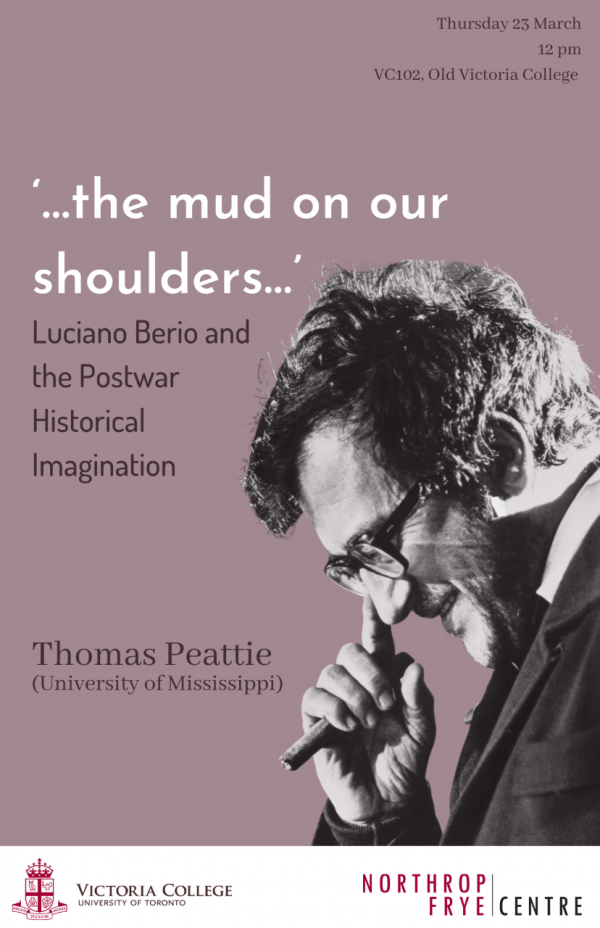NFC Visiting Fellow Lecture 2022-23
This is a virtual event; a Zoom link will be sent out to those who register for a virtual attendance ticket.

About the talk...
In a 1999 interview, Luciano Berio offered an admiring description of what is perhaps the most singular feature of Gustav Mahler’s songs and symphonies: namely, that this music is, at its core, “inhabited by other music.” Although most works are in dialogue with a wide range of historical models, there is much in Berio’s deceptively straightforward observation that deserves more careful attention, especially as it concerns the composer’s own relationship to music history. Indeed, Berio’s evident attraction to the idea that music might be inhabited by other music reveals a clear understanding of the more general idea that works of art are always marked by their precedents, “the mud on our shoulders” as the composer’s sometime collaborator Edoardo Sanguineti put it. Whereas for Berio one of the most important generating forces of a work’s musical identity is an explicit dialogue with its own history, it is ultimately the self-conscious nature of this dialogue that allowed Berio to see the composers he transcribed as fellow travellers in a landscape in which music is, by definition, always about music. In this paper I consider two categories of “music about music” in Berio’s transcribing practice in order to highlight the composer’s unique attitude toward the musical past in the context of the postwar avant-garde. The first category concerns the use of quotation and allusion, a practice that in Berio’s hands shares a number of surprising similarities with the kind of intertextual strategies found in much nineteenth-century music. The intertextual references in the second category, by contrast, have their origins in a far broader sound world drawn from Berio’s own [re]construction of specific sonic events both real and imagined.
About the speaker...
